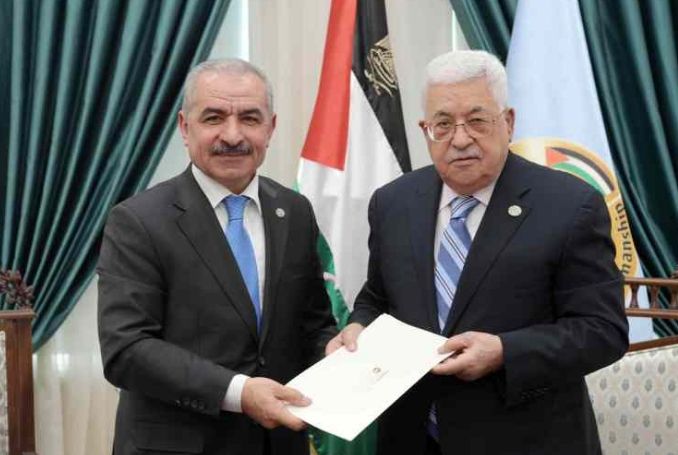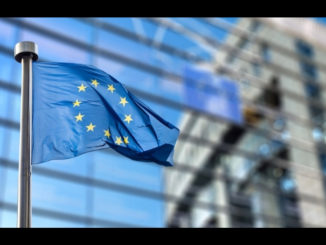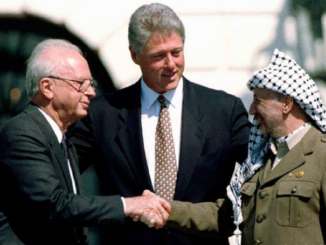
By Ramona Wadi
Ever since the US ostracised the Palestinian Authority, there has been a change in rhetoric that attempts to equate the struggles it is facing with those of the Palestinian people.
Israel’s deduction of tax revenues has also become another battleground where the PA seeks to portray itself as steadfast and resolute when it comes to taking a principled stance.
Add to the mix the forthcoming economic summit in Bahrain which launches the “deal of the century”, and then the PA makes a spectacle of itself with a most contradictory statement.
“We do not give in to extortion, nor would we trade our national rights for money,” said Prime Minister Mohammad Shtayyeh.
His comments do not reflect the PA’s politics but rather are a response to its current precarious standing.
Having suffered financial setbacks, the authority is trying to maintain equivalence between its hierarchy and the people, describing its situation as the result of a “financial war waged against the Palestinians with a goal to extort political compromises from them.”
This merging of the PA and the Palestinian people is more than superficial; it is non-existent. Central to the PA’s existence is precisely the trading of national rights for money; the Oslo Accords paved the way for the erosion of Palestinian rights until Palestine is spoken of merely as an appendage to Israel.
Donor funding is the lucrative incentive for the PA to continue its work as an extension of Israel’s colonial violence against the people of Palestine, and not only through security coordination.
Central to the PA’s strategy is the appropriation and distortion of the Palestinian cause, to the point that when its officials deem it to be suitable, the definition of national rights is taken away from the people and promoted as a PA concern by the same entity that has squandered Jerusalem, the Palestinian right of return and anti-colonial struggle.
What upholder of national rights facilitates Israel’s incarceration of Palestinians involved in legitimate resistance? How can a select elite, also victims of the Nakba and its ongoing aftermath, ridicule the Palestinian right of return by upholding the two-state compromise and ceding the right to historic Palestine?
To say that the PA has, at some point, given in to extortion is inaccurate. The PA welcomed and participated in extortion alongside the international community, against the rights of the Palestinian people. It is safe to say that national rights derive the narrative from the people themselves.
In its current circumstances, the PA is simply trying – unsuccessfully – to pretend that there is no divide between its authoritarian structure and the Palestinian people. Despite excelling in its collaboration with Israel and the international community, the PA has discovered that it is indeed dispensable when it comes to the trajectories of international diplomacy.
As it seeks to disguise itself as being at one with the people, the PA exposes its intentions by refusing to call for the end of Israeli colonialism in favor of “a political solution aimed at ending the occupation”. The context, therefore, was never about national rights but a growing concern over the PA’s financial tribulations and the ensuing consequences for its swiftly dwindling authority.
– Ramona Wadi is a staff writer for Middle East Monitor, where this article was originally published. She contributed this article to the Palestine Chronicle.







